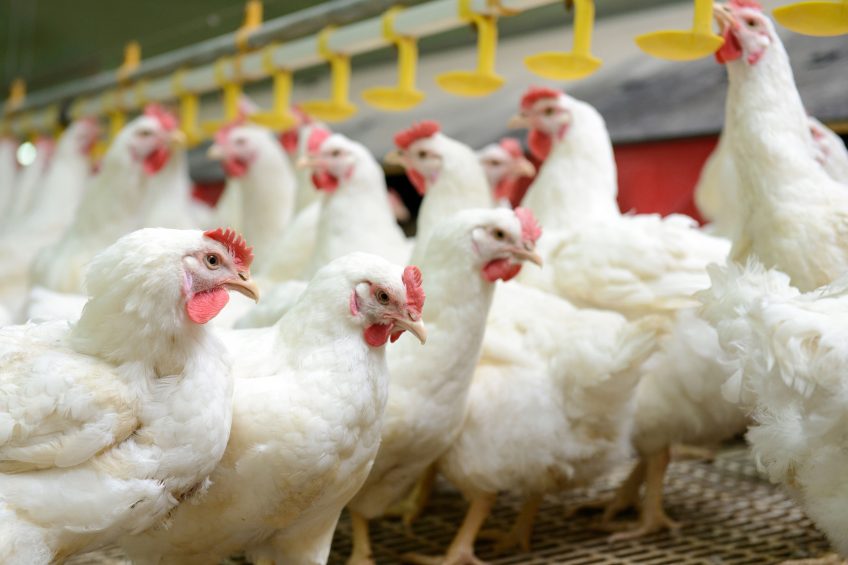High phytase wheat breed highly effective in poultry diet

Research has shown that specially-bred wheat could help provide key nutrients essential for healthy bones in broilers, reducing the need to supplement the feed.
The study discovered that what can be bred naturally to produce high levels of phytase – an enzyme needed to release phosphorous, which birds require to grow a healthy skeleton.
Until now, nutritionists have tended to tackle the issue through supplements to ensure the correct mineral balance in the diet. However, not only is phosphorous supplementation very expensive but also the phosphorous, from plant sources, has a very low bio-availability being bound up in a plant substance called phytate.
Phosphorous bound in phytate cannot be utilised by monogastric animals because they have negligible amounts of the phytase enzyme in their gastrointestinal tract – which is needed to make the phosphorous from phytate bioavailable.
This anti-nutritional effect of phytate is estimated to cost animal producers up to £1.3bn a year. In addition to this, phytate-bound phosphorous which is excreted can – via eutrophication – have a negative impact on the natural environment.
New phytase source trial
Plant breeding scientists from Aarhus University in Holland used their expertise to breed wheat with naturally high levels of phytase. Scientists at Nottingham Trent University’s poultry nutrition research team then designed and carried out a poultry nutrition trial to compare this new source of phytase to traditional poultry diet formulations.
The trial showed that inclusion of the high phytase wheat in the feed was a highly effective way to unlock the phosphorous in the diet.
Dr Henrik Brinch-Pederson, group leader at Aarhus University’s Department of Molecular Biology and Genetics, said reaching this milestone had been a key research target for many years.
“Seeing that it works well in animal feeding is extremely satisfactory. A particularly exciting additional implication of this work may actually be for humans. 700 million people globally suffer anaemia partly caused by the high phytate content of their diet. Providing a variety of wheat that contains its own phytate-destruction enzyme could improve the population health of many nations.”
Dr Emily Burton, head of the poultry research unit at Nottingham Trent University, added: “It has been exciting to explore a completely different way of providing meat chickens with the phosphorous needed for healthy bones.”
Steve Wilson, monogastric nutritionist at animal feed producers ForFarmers, said the research had major implications for the poultry sector.
“Wheat is the predominant ingredient used in poultry diets and over 50% of all the wheat grown in the EU is used in the manufacture of animal feeds. If the naturally occurring level of phytase in this major cereal can be increased then it can make a significant economic contribution to our aim to improve the efficiency and sustainability of future feed production.”
Norwich-based Plant Bioscience Ltd is now working with partners in the plant breeding and feed industry to develop the innovation.
• The research has been published in the journal: Animal: An International Journal of Animal Bioscience.












